programming languages

Why I Was Wrong About TypeScript

SOLID Elixir

Connecting Different Programming Languages Together with just Few Lines of Code

Cruising Along with Java

Rust Async Programming in 2018

Hedy: Creating a Programming Language for Everyone

Hedy: Creating a Programming Language for Everyone

Let’s Get Lazy: Exploring the Real Power of Streams

Hedy: Creating a Programming Language for Everyone

Bash and All That; Why Ancient *NIX Tools Are Still Essential

Kubernetes-ize your Java Application

Simplification and Automation in Java: Yesterday, Today and Tomorrow

Fresh Async With Kotlin

Why You Need a Software Delivery Machine

WebAssembly in Production: A Compiler in a Web Page

Machine Learning: Alchemy for the Modern Computer Scientist

The Robustness of Go

Getting Started with Quantum Programming

Reaching Beyond Traditional Boundaries with Clojure

Why You Need a Software Delivery Machine

Sonic Pi - How to Live Code an Orchestra

Upgrade Time: Choose Java 11+ or the “Other” One… Kotlin

Life After Business Objects - Confessions of an OOP Veteran

Dynamic Constants — Oxymoron or Promising JVM Feature?

10 Reasons to Try Kotlin Multiplatform

Reading Code

Keep Your Dependencies in Check

Erlang and Elixir: On the Shoulder of Giants, There is Room for Larger Giants

A Code Centric Journey Into the Gleam Language

Verse: A New Functional Logic Language

OCaml for Fun and Profit: An Experience Report

OCaml for Fun and Profit: An Experience Report

OCaml for Fun and Profit: An Experience Report

A Code Centric Journey Into the Gleam Language

Intro to Roc & Innovation in Functional Programming

A Code Centric Journey Into the Gleam Language

Effective Kotlin

Build your own Language: Why and How?

Flutter: The Best Way to Build for Mobile?
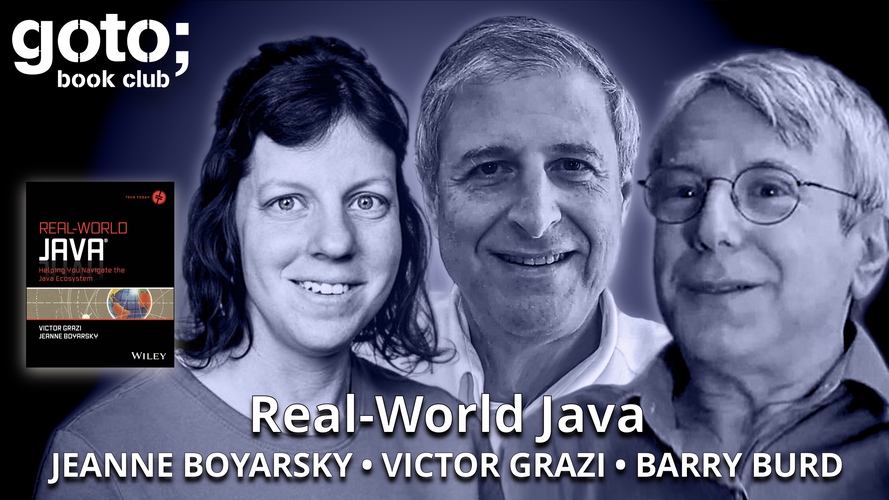
Real-World Java

C++ Memory Management

Learning Python Programming

An Introduction to Functional Imperative Programming in Flix

An Intro to Project Riff, a FaaS Built on Top of Knative

The Do's and Don'ts of Error Handling

Cloud Native Java

Rapid Java Innovation

Old Is the New New

Learning to Live with Errors

Software Automation in a Polyglot Stack

The Robustness of Go

Analyzing Pwned Passwords with Apache Spark

C++ - the Newest Old Language

Making It Count: Quality is NOT an Option

Keeping Up with Java

Rust 2018: Access All Areas

Upgrade Time: Choose Java 11 or the “other” one… Kotlin

A Language Stack for Implementing Contracts

Life After Java 8

A TypeScript Fan's KotlinJS Adventures

Java Generics and Collections

Rust & Zig Combined

How to Build Software From Source

A Tour of the Modern Java Platform

Java in the Cloud with GraalVM

Securing the JVM
![Keeping Up with Java [VIRTUAL]](https://img.youtube.com/vi/cF-rUNCOm2c/maxresdefault.jpg)
Keeping Up with Java [VIRTUAL]

Kubernetes, Your Next Java App Server

The Efficiency Paradox and How to Save Yourself and the World

Java, Code Coverage & Their best Friend — Bytecode: Scandals, Intrigues, Investigations

Cruising Along with Java

Memory Efficient Java

Upgrade Time: Choose Java 11 or the “other” one… Kotlin

The Sincerest Form of Flattery

Introduction to Micronaut: Lightweight Microservices with Ahead of Time Compilation

Securing the JVM

Processing Data From the James Webb Space Telescope

Modern and Lightweight Cloud Application Development with Jakarta EE 10

Javalution - How I Learned to Stop Worrying & Play Jenga with the entire Software Industry. What could possibly go Wrong?

Maximizing Java Application Performance with GraalVM

Cloud Native Java

Keeping Up with Java

Structured Concurrency in Java: The What & Why

REST no more - Using Actors for the Internet of (LEGO) Trains & Raspberry Pis

The Efficiency Paradox and How to Save Yourself and the World

15 Years of Spring: Evolving a Java Application Framework

Processing Data From The James Webb Space Telescope

The Efficiency Paradox and How to Save Yourself and the World

SolidJS - The World Beyond Components

Quarkus in Action

Achieving Functional Programming in Java

Generic or Specific? Making Sensible Software Design Decisions

Java Renaissance

Real World Java 9

Java Generics and Collections

Java Renaissance

Real-world Reactive Programming in Java: The Definitive Guide

Java In The Cloud with GraalVM

Optimizing Cloud Native Java

State of the Art of Spring AI

JVM Performance Engineering

Java's Hidden Gems: Tools and Libraries

Java's Hidden Gems: Tools and Libraries

GraalVM: Run Programs Faster Anywhere

Java Renaissance

Java's Hidden Gems: Tools and Libraries

Kubernetes-ize your Java Application

Java Current and Future

How Fast Can You Parse a File with 1 Billion Rows of Weather Data Using Java?

Let’s Get Lazy: Exploring the Real Power of Streams

Simplification and Automation in Java: Yesterday, Today and Tomorrow

Concerto for Java and AI - Building Production-Ready LLM Applications

A Tour of the Modern Java Platform

How To Reduce Cold Starts for Java Serverless Applications in AWS: GraalVM, AWS SnapStart & Co

Securing the JVM

Modern Java in Action

Real-World Java

Concerto for Java and AI - Building Production-Ready LLM Applications

Keeping Up with Java

Java Project Loom: Why Should I Care?

Java, Code Coverage and Their Best Friend — Bytecode: Scandals, Intrigues, Investigations

Java, Code Coverage and Their Best Friend — Bytecode: Scandals, Intrigues, Investigations

Dynamic Constants — Oxymoron or Promising JVM Feature?

Java, Code Coverage and Their Best Friend — Bytecode: Scandals, Intrigues, Investigations

Cloud Chaos and Microservices Mayhem

A Tour of the Modern Java Platform

REST no more - Using Actors for the Internet of (LEGO) Trains & Raspberry Pis

TypeScript vs KotlinJS

Demystifying Scala

Analyzing Pwned Passwords with Apache Spark

Internationalisation is a Piece of Cake

Deno 2

The Future of Machine Learning & JavaScript

Introducing Elm to a JavaScript App

CSS vs. JavaScript, Trust vs. Control

Thinking Like a Data Scientist

TypeScript Cookbook

You Really Don't Need All That Javascript, I Promise

Augmented Reality - flavours, challenges and writing AR experiences in JavaScript

How Serverless Technologies Accelerate Our Digital Transformation

Turbopack: DX Matters

You Really Don't Need All that JavaScript, I Promise

WebAssembly Beyond the Browser

JavaScript at Uber

WebAssembly in Production: A Compiler in a Web Page

The Soul of Erlang and Elixir

Problem Solving With Erlang & the BEAM

Elixir, Phoenix LiveView & Erlang: Expert Talk

Erlang and Elixir: On the Shoulder of Giants, There is Room for Larger Giants

Livebook and Elixir: Where AI, Web, and Concurrency Meet

A Code Centric Journey Into the Gleam Language

Livebook and Elixir: Where AI, Web, and Concurrency Meet

Concurrency Oriented Programming in a Modern World

Livebook and Elixir: Where AI, Web, and Concurrency Meet

Elixir: The only Sane Choice in an Insane World

Elixir's Impact: Shaping the Evolution of Erlang

The Soul of Erlang and Elixir

From Objects to Functions

Bootiful GraphQL with Kotlin

Server-side Kotlin with Coroutines

Using Ktor 3.0 with All the Shiny Things

Static Kotlin Bug Hunting

A Tour of the Modern Java Platform

Robot DJs: Better Spotify Playlists through Music Theory and Discrete Optimization

A Veterans Guide To Transitioning Android Teams Into Kotlin

Effective Kotlin

Static Kotlin Bug Hunting

Upgrade Time: Choose Java 11 or the “other” one… Kotlin

Migrating Spring Boot Apps from Annotation-based Config to Functional with Kotlin

TypeScript vs KotlinJS

Functional Programming with Kotlin

Static Kotlin Bug Hunting

Composing All The Things

Kotlin - Ready for Production

Embracing the Future in a Multi-Platform World: A Kotlin Story

10 Reasons to Try Kotlin Multiplatform

Kotlin/Native: The Good, The Bad, and the Ugly

Kotlin - Ready for production

Kotlin: Dissecting the stdlib

TypeScript Cookbook

Robot DJs: Better Spotify Playlists through Music Theory and Discrete Optimization

Why I Was Wrong About TypeScript

SolidJS - The World Beyond Components

Reaching Beyond Traditional Boundaries with Clojure

Functional Programming in 40 Minutes

Teaching Children about Clean Code

Why Static Typing Came Back

Introducing Elm to a JavaScript App

A Decision Maker's Guide to Typed Functional Languages

Next-Generation Programming: Rust and Elm

Building a Debugger

C++ Memory Management

Towards Safety and Security in C++26

C++ - the Newest Old Language

The Robustness of Go

The Robustness of Go

Analyzing Pwned Passwords with Apache Spark

Clean Architecture with ASP.NET Core 3.0

Nullable reference types in C# 8

Understanding Rust; Or How I Learned to Stop Worrying & Love the Borrow-Checker

Zen and the Art of Convincing Your Company to Use Rust

Understanding Rust; Or How I Learned to Stop Worrying & Love the Borrow-Checker

Understanding Rust; Or How I Learned to Stop Worrying & Love the Borrow-Checker

I Learned Embedded Development with Rust And You Can Too

Rust & Zig Combined

Ready for Rust

Next-Generation Programming: Rust and Elm

Why Static Typing Came Back
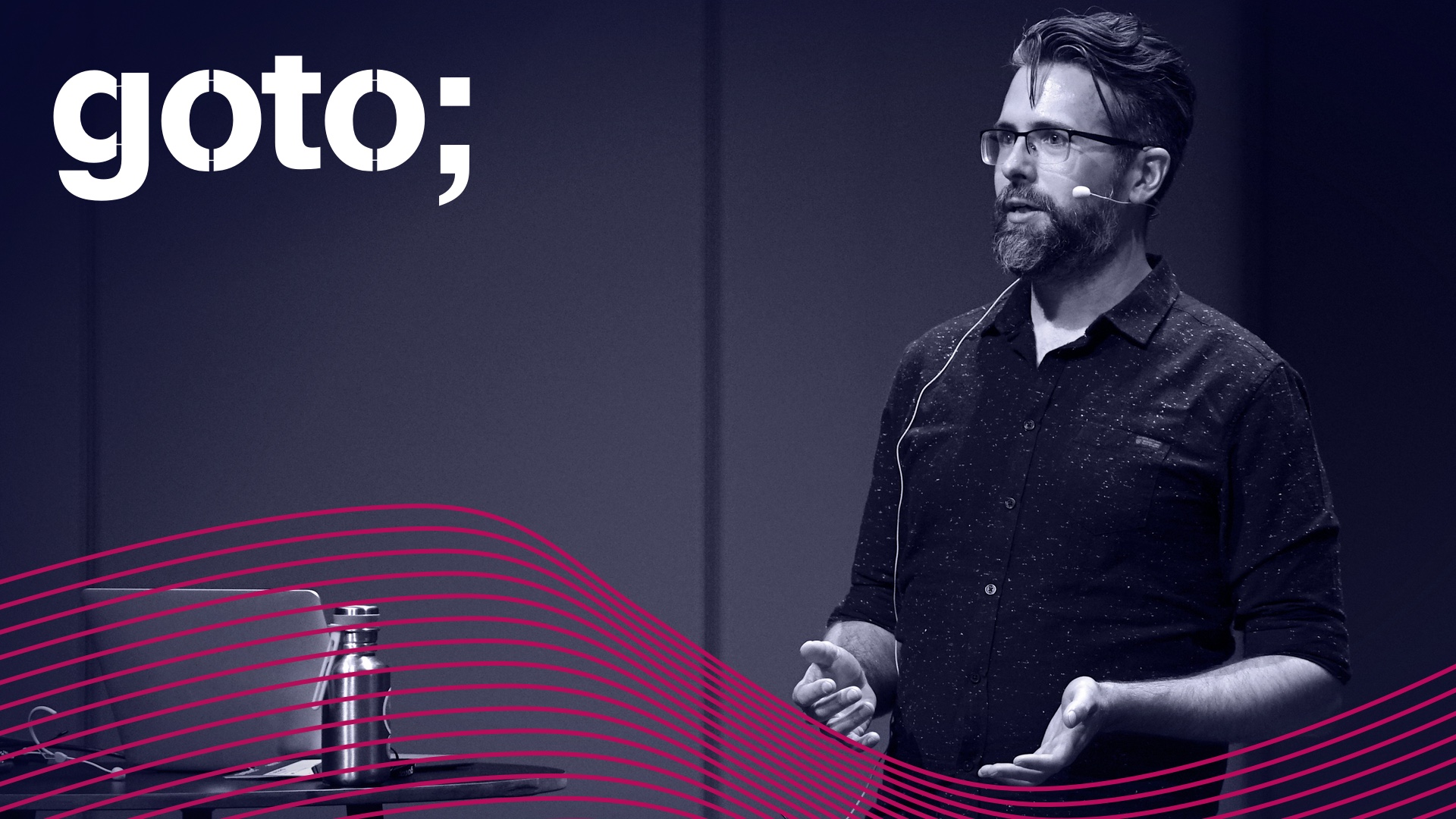
Scaling up an iOS Codebase

What’s New in Swift

WebAssembly on Kubernetes

Don't Trust Anything! Real-world Uses For WebAssembly

Don't Trust Anything! Real-world Uses For WebAssembly

WebAssembly Beyond the Browser

Don't Trust Anything! Real-world Uses For WebAssembly

WebAssembly in Production: A Compiler in a Web Page

Rust 2018: Access All Areas

CSS vs. JavaScript, Trust vs. Control

The Robustness of Go

The Soul of Erlang and Elixir

Problem Solving With Erlang & the BEAM

Elixir, Phoenix LiveView & Erlang: Expert Talk

Concurrency Abstractions for Application Security

Livebook and Elixir: Where AI, Web, and Concurrency Meet

Livebook and Elixir: Where AI, Web, and Concurrency Meet

Livebook and Elixir: Where AI, Web, and Concurrency Meet

The Soul of Erlang and Elixir

Concurrency Oriented Programming in a Modern World

Elixir's Impact: Shaping the Evolution of Erlang

Erlang and Elixir: On the Shoulder of Giants, There is Room for Larger Giants

Concurrency Oriented Programming in a Modern World

Building a Blockchain in Erlang

You Really Don't Need All that JavaScript, I Promise

HTML: How to Make Loveliness

You Really Don't Need All That Javascript, I Promise

Learning Python Programming

It Really is Easier to Ask for Forgiveness (than Permission)

Reinforcement Learning - ChatGPT, Playing Games, and More

Ray: A System for Distributed Applications

Scaling Python for Machine Learning: Beyond Data Parallelism

Robot DJs: Better Spotify Playlists through Music Theory and Discrete Optimization

Clean Architecture with Python

Cruising Along with Java

Rust in Action

![97 Things Every [Java] Programmer Should Know](https://files.gotocon.com/uploads/article_images/1/36/kevlintrisha_medium.jpg)
97 Things Every [Java] Programmer Should Know

Your Guide for Building a Jamstack Website


Quantum Computing in Action

Optimizing Cloud Native Java

Getting to Know IntelliJ IDEA


Holiday Special 2022

The Best of GOTO Book Club Part Two

Cruising Along with Java
![97 Things Every [Java] Programmer Should Know](https://files.gotocon.com/uploads/article_images/1/36/kevlintrisha_medium.jpg)
97 Things Every [Java] Programmer Should Know

Spring Boot: Up and Running

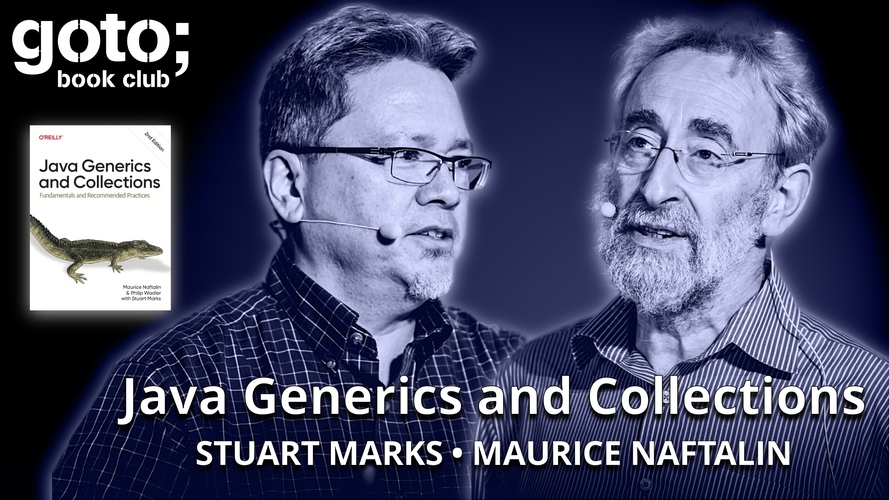
Java Generics and Collections
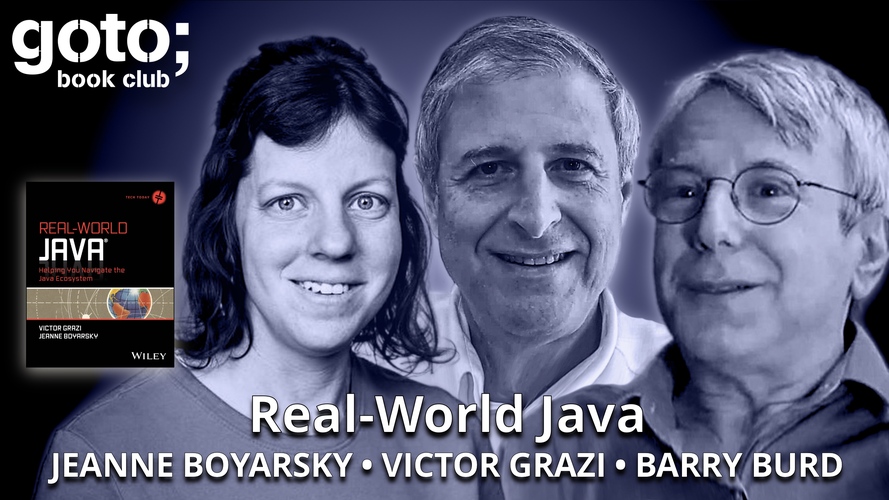
Real-World Java

Programming with Kotlin: Why, How and Kotlin’s Place in the Future

Effective Kotlin

Learning Test-Driven Development
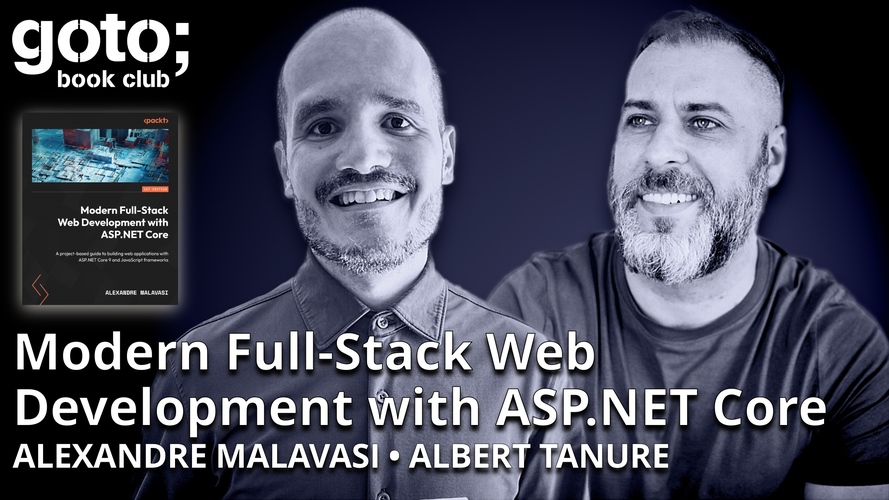
Modern Full-Stack Web Development with ASP.NET Core

Your Guide for Building a Jamstack Website

TypeScript Cookbook

Programming Phoenix LiveView

The Best of GOTO Book Club Part One

Elixir in Action

GOTO Book Club Yule Special

Genetic Algorithms in Elixir

Spring Boot: Up and Running

The Best of GOTO Book Club Part Two

Programming with Kotlin: Why, How and Kotlin’s Place in the Future


Effective Kotlin

TypeScript Cookbook

GOTO Book Club Yule Special

Upgrade Your Front-end Game – Be an Elm Wizard

The Best of GOTO Book Club Part One

Rust in Action

Learning Test-Driven Development


CockroachDB: The Definitive Guide

Rust in Action

Modern X86 Assembly Language Programming

Learning Test-Driven Development

The Quick Python Book
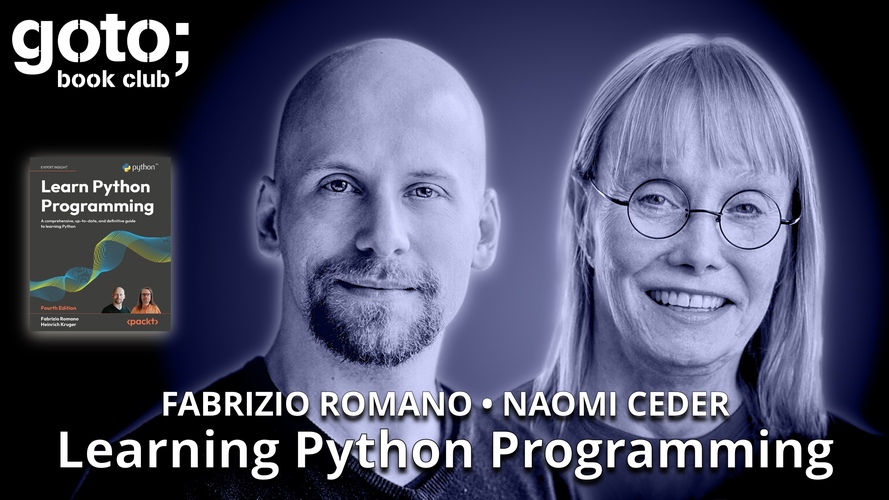
Learning Python Programming
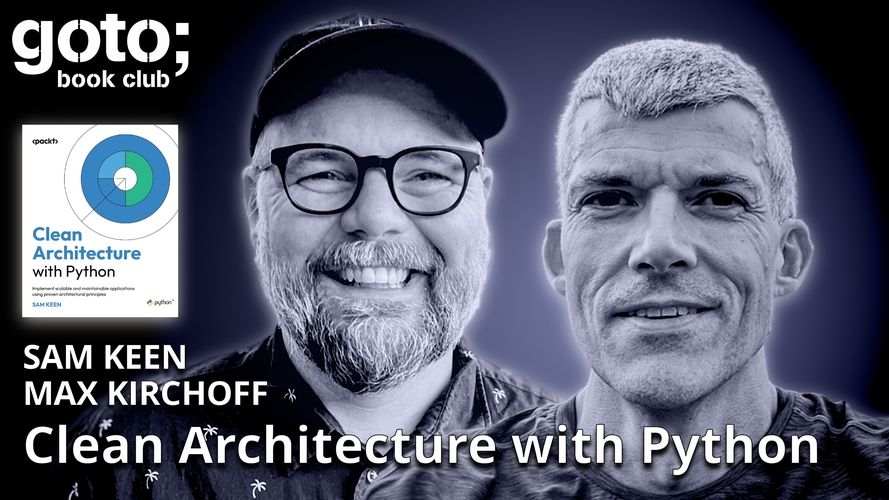
Clean Architecture with Python

Python Was Crowned Programming Language King of 2020

Expert Talk: Managing Complexity in Software

Teaching Kids How to Code with Hedy

Navigating Through Programming's Greatest Mistakes

Should Kotlin Be Your Go-To Language?

The Future of Java: Will You Have to Pay For It?

The Ideal Programming Language

The Ideal Programming Language

Expert Talk: Zig Programming Language and Linters

Driving Innovation with Kubernetes & Java

Quarkus Unveiled: Efficiency & Green Impact

The Future of Java: Will You Have to Pay For It?

JDK 16: Should You Upgrade or Wait For 17?

Java Security and the Java Ecosystem

The Origin of Dylan Beattie & The Linebreakers

Expert Talk: Web Development & Its Failures

Problem Solving With Erlang and the BEAM

Elixir, Phoenix LiveView & Erlang: Expert Talk

Elixir's Impact: Shaping the Evolution of Erlang

Erlang: Solving Problems at Scale for 30+ Years

Expert Talk: Managing Complexity in Software

Should Kotlin Be Your Go-To Language?

The Ideal Programming Language

The Ideal Programming Language

Expert Talk: Code Refactoring

Expert Talk: Zig Programming Language and Linters

Intro to Roc & Innovation in Functional Programming

The Ideal Programming Language

Expert Talk: Functional Programming

Should Kotlin Be Your Go-To Language?

The Ideal Programming Language

Top Trends in Software Development That You Should Know About

Unlocking the Web: Exploring WebAuthn and Beyond

Decoding Modern Tech: Cloud, APIs, Wasm, Security, & More

Problem Solving With Erlang and the BEAM

Erlang: Solving Problems at Scale for 30+ Years

Elixir, Phoenix LiveView & Erlang: Expert Talk

Elixir's Impact: Shaping the Evolution of Erlang

Python Was Crowned Programming Language King of 2020

Garth Gilmour
Liberty IT
Delivered over 1,000 masterclasses & author of 40+ training courses; Learning Consultant at Liberty IT

Jeanne Boyarsky
Software developer in NYC, Java Champion, FIRST FRC mentor, CodeRanch moderator, Toastmaster. Author of OCP Java Certification Study Guides and Real World Java

Georges Saab
Oracle
Senior Vice President of software development for the Java Platform Group at Oracle

Brooklyn Zelenka
Ink & Switch
Author of numerous libraries including Witchcraft, and founded the Vancouver Functional Programming Meetup.

Sean Moriarity
Author of Genetic Algorithms in Elixir and Machine Learning in Elixir, co-creator of Nx.

Florian Gilcher
Ferrous Systems
Founder of Ferrous Systems, Music Addict, Rubyist, Rust Trainer & Backend Programmer

Sam Keen
AlterCraft
Founder & Researcher at AlteredCraft & Author of “Clean Architecture with Python”
Browse all tags
Here























































































